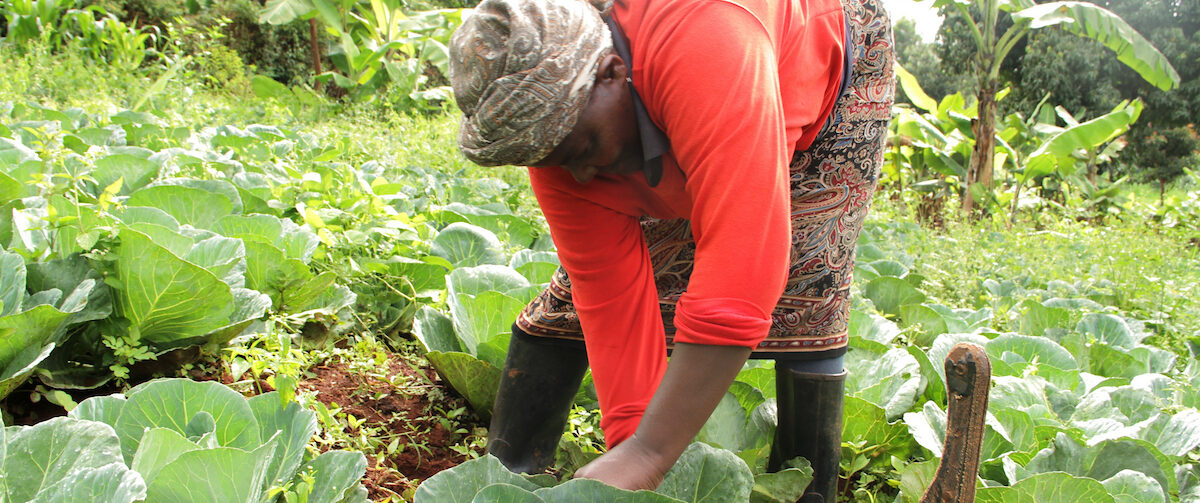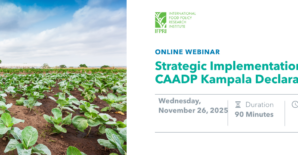By Antoine Bouët; Fousseini Traoré; Pierre Mamboundou; Insa Diop; and Abdourahmane Sy.
Permanent link to cite or share this item
Abstract/Description
Food security deteriorated in Africa during the past decade, and the number of undernourished people has been increasing since 2010. The prevalence of undernourishment is now above pre-pandemic levelsat 9.7% compared with 7.2% in 2019, and Africa reports the highest level in the world. External factors, such as the Russia-Ukraine conflict, have contributed to this increase Projections show that almost 600 million people in Africa will be chronically undernourished in 2030. Moreover, Africa is not on track for SDG2, eradicate hunger by 2030. To achieve food security and reduce the number of undernourished people, many policymakers are advocating for food self-sufficiency. Relying on local production and promoting it through various policy measures, including restrictive trade policies, appears to many to be a natural solution. Yet, there has been a long-standing debate among analysts as to whether trade restrictions are a good strategy, especially in Africa, to achieve food security. The proponents of food self-sufficiency argue that trade liberalization increases food dependency (and import bills) and makes consumers vulnerable to external shocks in food availability, as well as exposing them to unhealthy foods. They advocate for stimulating local production with subsidies and trade restrictions. For the opponents, opening borders to international trade is a guarantee of cheap and easy access to diversified food products. Furthermore, by partially decoupling local markets from domestic shocks, trade can also help stabilize domestic food markets. This report contributes to that debate. Using both qualitative and quantitative analysis, we reach the conclusion that food self-sufficiency is neither a necessary nor a sufficient condition for food security. Food security is a multidimensional concept, and only two dimensions– availability and utilization—seem to be affected by food self-sufficiency in Africa. Also, while public support to agriculture can help achieve food self-sufficiency, its impact is not linear, and beyond a certain threshold, diminishing returns are observed. Overall, different approaches can achieve food security, and there is no “one-size-fits-all strategy.” International or regional trade can contribute to food security and stabilize domestic food markets, as regional production is usually less volatile than domestic supply.
Find out more HERE



